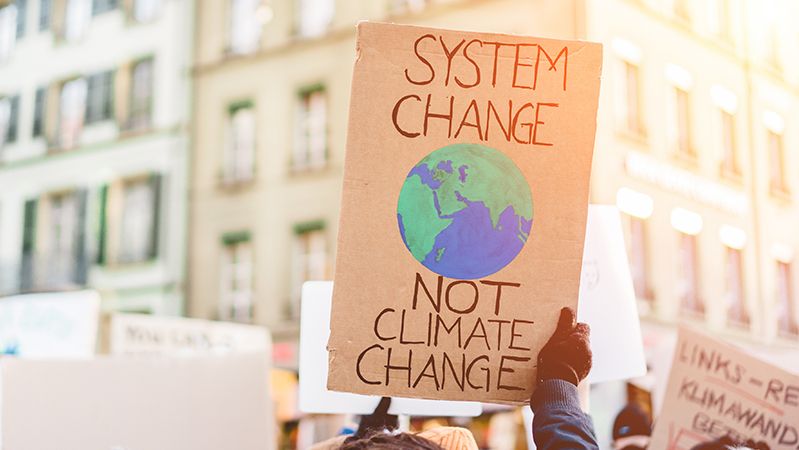Despite climate change being recognised as one of the biggest threats to human life, some approaches could cause extreme geopolitical instability – potentially a bigger risk than the direct impacts of peak global warming – according to a senior climate scientist.
At a lecture at Gresham College, professor Myles Allen – head of climate science at Oxford University’s physics department and a contributor to the Intergovernmental Panel on Climate Change – argued there must be far more focus on the geopolitical consequences of climate policies, rather than just slowing warming at all costs.
“The geopolitical instability exacerbated by climate change is a bigger risk than the direct impacts of peak warming itself, which means that climate change ‘solutions’ which exacerbate that geopolitical instability may not be worth contemplating – even if they do reduce warming,” Allen asserted.
“Continued dependence on fossil fuels at the level we are now will exacerbate global inequalities and drive instability,” he continued.
But technical fixes like mirrors in space, artificial volcanoes or the brightening of marine clouds to cool the planet are “uniquely destabilising”. This is because, for Allen, once such a programme begins, the ‘geo-engineers’ – probably the government of a single powerful nation – will be blamed for every drought and flood thereafter, wherever it occurs.
“Most people agree solar geoengineering is a bad idea for this very reason but, to be fair, we need to view all climate policies through the same lens. We saw at COP28 that developing countries bristle at well-intentioned calls from the environment movement to phase out fossil fuels – their fossil fuels. And measures like the European Union’s Carbon Border Adjustment Mechanism are far too easy to caricature as climate colonialism.
“In the UK, both parties seem keen to turn climate into a wedge political issue, without actually affecting emissions. Everyone will eventually need to accept pragmatic solutions that may seem second-best, like decarbonising fossil fuels well before they are phased out. But climate is too important to pick fights over it.”
Geopolitical chaos to harmony
Adding to the complexity of the situation, last month the World Economic Forum addressed geopolitical chaos by saying that sustainability “can be a vector of change that not only promotes an inclusive economic development but also underpins peace and stability”.
“In the current global landscape, with escalating conflicts in a world polarised on multiple fronts, we see how geographical tensions have unexpected effects across all development angles. Geopolitical rivalries and conflicts have inadvertently become drivers of environmental degradation as nations prioritise their strategic interests over collective efforts to combat climate change,” the blog post says.
However, for the WEF, this also presents a “silver lining”, in that it presents “a unique opportunity for leaders to swiftly adapt and reconfigure global trade and climate strategies” in the face of escalating regional uncertainties. For them, future shifts in addressing sustainability and supply chain resiliency involve moving to regional supply chain management, real-time supply chain monitoring and the introduction of comprehensive sustainability strategies.
“The intersection of geopolitical dynamics and environmental concerns is just another example of the need for the global community to prioritise multilateral cooperation and sustainable practices to address the pressing effects of climate change in an interconnected world.”








